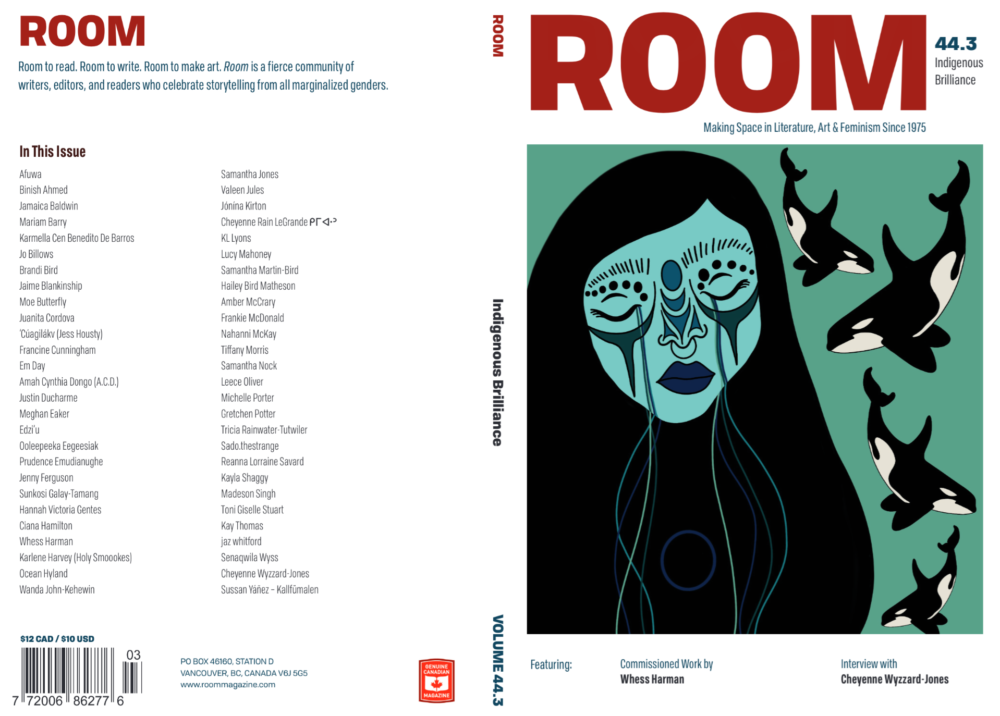When our team first discussed what an Indigenous Brilliance themed issue might look like, our conversation turned to more questions than answers. We asked ourselves what indigeneity meant for us on ministik/Turtle Island, what our work looked like in conversation with global indigeneity and global entanglements of colonialism and imperialism, how Indigenous Brilliance as a collective previously made space, or didn’t make space, for our Afro and Black-Indigenous kin. The issue, then, became a space for these questions to be explored, centred, and interrogated, and the result is a physical testament to the brilliance of every Black, Indigenous, and Afro-Indigenous creative celebrated throughout these pages, and all those they carry with them in their work.
In Karmella Cen Benedito De Barros’ featured interview with Cheyenne Wyzzard-Jones, the two discuss Black and Indigenous solidarity, the intersecting and differing experiences of Black and Afro-Indigenous folks, and the importance of centering Black-Indigenous people in community and for collective liberation. We are also thrilled to feature an art-heavy issue. From Ocean Hyland’s stunning cover art, Orca Prayers, to our commissioned artist Whess Harman’s graphic comic This River Has Tides, and the various artistic contributions that span the issue pages, all these works blend forms and visual languages that speak to relationality.
The poetry, fiction, and creative non-fiction in these pages will grip and still your heart, transport you somewhere new, and conjure whole other worlds to lose yourself in. Samantha Martin-Bird’s Indigenous Voices Award-winning poem “the indian (adultery) act” uses humour and a calm severity to expose the racist policies enacted by the Indian Act, and the five poems by Ooleepeeka Eegeesiak wields language and imagery to conjure expansive sci-fi fantasies. Mariam Barry’s creative non-fiction piece “Twin Flame” will show you what it’s like to see kinship and family everywhere you look, and Gretchen Potter’s story “Dearbaby Destroytown” will transport you to a world where NDN babies born with a special mark have superpowers, and even at the end of days, love shines through it all.
We are honoured that this issue leaves us with a brilliant BackRoom interview with Senaqwila Wyss, who shares visions of the territories from which our work is carried out. We are thrilled to share a glimpse into her expansive practice, and look forward to continue to learn from her. We seek to acknowledge the specificity of the history, waters, and lands to whom we are in relationship with as we carry out our organizing on unceded Musqueam, Squamish, and Tsleil-Waututh territories, while at the same time offering to Room readers, particularly our Indigenous kin, a space to explore the complexities of indigeneity.
These voices are varied in where they come from and the experiences they speak to, but they all hold a love that binds us all: love born out of our ancestors, both from the past and yet to come; love that exists within our expansive kinship networks and relations; and love that lives in a past and future we’re (re)envisioning into existence.
hiy hiy/miigwech
—The Indigenous Brilliance Team














